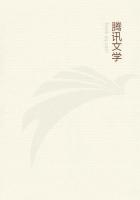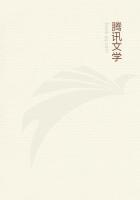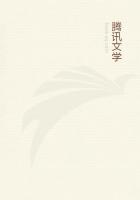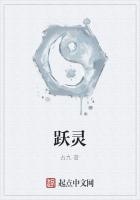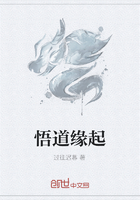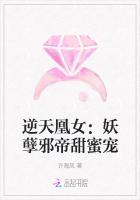For not only are we at the opening of the "Canterbury Tales" placed in the very heart and centre of English life; but the poet contrives to find for what may be called his action a background, which seems of itself to suggest the most serious emotions and the most humorous associations. And this without anything grotesque in the collocation, such as is involved in the notion of men telling anecdotes at a funeral, or forgetting a pestilence over love-stories. Chaucer's dramatis personae are a company of pilgrims, whom at first we find assembled in a hostelry in Southwark, and whom we afterwards accompany on their journey to Canterbury. The hostelry is that "Tabard" inn which, though it changed its name, and no doubt much of its actual structure, long remained both in its general appearance, and perhaps in part of its actual self, a genuine relic of mediaeval London. There, till within a very few years from the present date, might still be had a draught of that London ale of which Chaucer's "Cook" was so thorough a connoisseur; and there within the big courtyard, surrounded by a gallery very probably a copy of its predecessor, was ample room for --well nine and twenty in a company Of sundry folk, with their horses and travelling gear sufficient for a ride to Canterbury.
The goal of this ride has its religious, its national, one might even say its political aspect; but the journey itself has an importance of its own.
A journey is generally one of the best of opportunities for bringing out the distinctive points in the characters of travellers; and we are accustomed to say that no two men can long travel in one another's company unless their friendship is equal to the severest of tests. At home men live mostly among colleagues and comrades; on a journey they are placed in continual contrast with men of different pursuits and different habits of life. The shipman away from his ship, the monk away from his cloister, the scholar away from his books, become interesting instead of remaining commonplace, because the contrasts become marked which exist between them.
Moreover, men undertake journeys for divers purposes, and a pilgrimage in Chaucer's day united a motley group of chance companions in search of different ends at the same goal. One goes to pray, the other seeks profit, the third distraction, the fourth pleasure. To some the road is everything; to others, its terminus. All this vanity lay in the mere choice of Chaucer's framework; there was accordingly something of genius in the thought itself; and even an inferior workmanship could hardly have left a description of a Canterbury pilgrimage unproductive of a wide variety of dramatic effects.
But Chaucer's workmanship was as admirable as his selection of his framework was felicitous. He has executed only part of his scheme, according to which each pilgrim was to tell two tales both going and coming, and the best narrator, the laureate of this merry company, was to be rewarded by a supper at the common expense on their return to their starting-place. Thus the design was, not merely to string together a number of poetical tales by an easy thread, but to give a real unity and completeness to the whole poem. All the tales told by all the pilgrims were to be connected together by links; the reader was to take an interest in the movement and progress of the journey to and fro; and the poem was to have a middle as well as a beginning and an end:--the beginning being the inimitable "Prologue" as it now stands; the middle the history of the pilgrims' doings at Canterbury; and the close their return and farewell celebration at the Tabard inn. Though Chaucer carried out only about a fourth part of this plan, yet we can see, as clearly as if the whole poem lay before us in a completed form, that its most salient feature was intended to lie in the variety of its characters.
Each of these characters is distinctly marked out in itself, while at the same time it is designed as the type of a class. This very obvious criticism of course most readily admits of being illustrated by the "Prologue"--a gallery of genre-portraits which many master-hands have essayed to reproduce with pen or with pencil. Indeed one lover of Chaucer sought to do so with both--poor gifted Blake, whose descriptive text of his picture of the Canterbury Pilgrims Charles Lamb, with the loving exaggeration in which he was at times fond of indulging, pronounced the finest criticism on Chaucer's poem he had ever read. But it should be likewise noticed that the character of each pilgrim is kept up through the poem, both incidentally in the connecting passages between tale and tale, and in the manner in which the tales themselves are introduced and told.
The connecting passages are full of dramatic vivacity; in these the "Host," Master Harry Bailly, acts as a most efficient choragus, but the other pilgrims are not silent, and in the "Manciple's" Prologue, the "Cook" enacts a bit of downright farce for the amusement of the company and of stray inhabitants of "Bob-up-and-down." He is, however, homoeopathically cured of the effects of his drunkenness, so that the "Host" feels justified in offering up a thanksgiving to Bacchus for his powers of conciliation. The "Man of Law's" Prologue is an argument; the "Wife of Bath's" the ceaseless clatter of an indomitable tongue. The sturdy "Franklin" corrects himself when deviating into circumlocution:--Till that the brighte sun had lost his hue, For th' horizon had reft the sun of light, (This is as much to say as: it was night).

